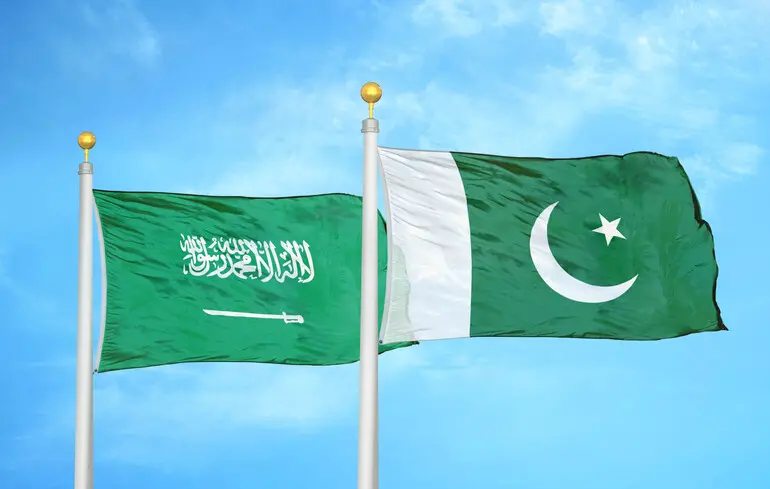Historic Alliance in the Middle East: Saudi Arabia and Pakistan Sign Mutual Defense Pact

The geopolitical landscape is witnessing a significant shift as two major regional powers—Saudi Arabia and Pakistan—have formalized a mutual defense agreement that could potentially redefine the strategic balance in the Middle East.
This pact, largely the product of years of diplomatic negotiations, represents more than just a response to regional tensions; it signifies a deepening of long-standing partnerships rooted in shared security concerns and mutual interests.
The agreement stipulates that any aggression against one of the signatory nations will be considered an attack on both, embodying the principle of collective defense that has historically played a crucial role in international security arrangements.According to Saudi officials involved in the negotiations, this treaty isn’t a reaction to any specific crisis but rather a formal institutionalization of their strong alliance, created in a context of mounting instability and regional conflicts.
The recent flare-ups—such as Israel’s attack on Qatar and airstrikes targeting Hamas leadership—have underscored the need for concrete security arrangements among Arab states and regional actors.
These events have also intensified tensions and created uncertainty about the future security architecture of the region.The signing ceremony, attended by Pakistan’s Prime Minister Shehbaz Sharif and Saudi Crown Prince Mohammed bin Salman, showcased the importance placed on this partnership.
Videos have captured the leaders embracing after the formal signing, symbolizing their united front against external threats.
The agreement also aims to bolster defense cooperation, including sharing military technologies and strategic information.While some experts highlight that the pact aims to balance regional rivalries—particularly with India, a nuclear-armed neighbor—others emphasize its potential to alter the regional power dynamics.
The prospect of nuclear cooperation, should it materialize, raises concerns about escalating arms races, but for now, the focus remains on building a joint deterrence mechanism.This move comes amidst a backdrop of regional conflicts, where fragile ceasefires and ongoing violence threaten to escalate into larger wars.
The Middle East, and the broader Gulf region, appears to be on the cusp of a new security paradigm, where alliances like this could either serve to stabilize or further complicate the tactical landscape.In the broader context, the developments in the Middle East hold implications far beyond the region’s borders.
European nations and Ukraine, which face their own security challenges, must monitor these dynamics closely, as regional conflicts often have ripple effects that impact global stability.
The question remains whether this historic alliance will serve as a stabilizing force or become a catalyst for further tensions.
As international observers analyze the unfolding events, one thing remains clear: the geopolitical balance in the Middle East is undergoing profound transformation, with long-term consequences yet to be fully understood.

